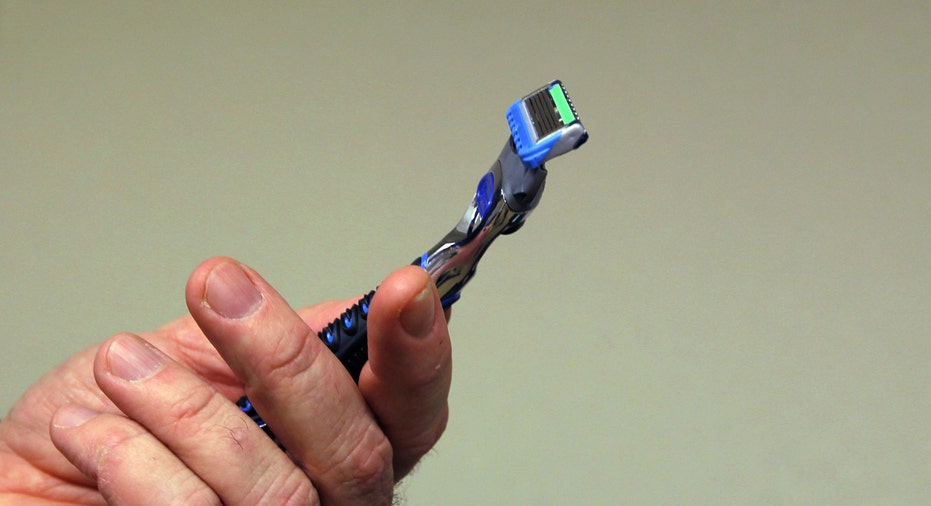Gillette, Bleeding Market Share, Cuts Prices of Razors

Gillette, which dominates the global razor business, has long followed a simple and lucrative strategy: Add new features and raise prices.
But the 115-year-old brand is changing tactics this month by slashing prices and putting a new focus on its cheaper products. The Procter & Gamble Co. unit hopes to stop defections of its U.S. customers to online startups like Dollar Shave Club and Harry's that sell lower-priced razors and blades.
Gillette's plan to cut prices by as much as 20% jolted Wall Street. "An act of desperation on Gillette?" asked Barclays analyst Lauren Lieberman, in a research note soon after the announcement in February by P&G.
New data show Gillette has lost U.S. market share for six straight years. Its share of the men's-razors business fell to 54% in 2016, down from 59% in 2015 and more than 70% in 2010, according to figures released Tuesday by data-tracking firm Euromonitor. P&G says its internal numbers show a lesser decline.
Gillette razors and blades are important, high-margin products for P&G, which bought the business for $57 billion in 2005. The Cincinnati giant finds itself under the microscope after Trian Fund Management, one of the biggest activist investors, announced in February it had built up a $3 billion stake in the company. Trian has yet to say what changes, if any, it will push for at P&G.
"We are very aware of what happening in the North American landscape and we are very focused on addressing some of the challenges that we face," Gillette spokeswoman Kara Buckley said.
The decision on pricing, she said, came as the company realized the drawbacks of its singular focus on creating ever-more sophisticated razors with higher and higher prices. "We need to do a better job of telling guys we are available for them at a multitude of price points," she said.
Refills for Gillette men's razors range from around $2 to $6 per cartridge, depending on the features, when not bought in bulk. That compares with Schick's $2 to $2.75 per cartridge, when not bought in bulk. The cheapest Dollar Shave Club option features refills for 20-cents a cartridge.
Even as lower-cost shave clubs entered the scene, P&G continued to roll out new, pricier products, such as a razor featuring a swiveling-ball hinge that allows the blade to pivot. Last month, the company filed a patent application for a razor cartridge that heats up.
Among the items getting a price cut: cartridges for the Fusion razor that features five blades in a single head and a special trimmer on the back for hard-to-reach areas. A four-pack that was selling for around $19.50 will now go for closer to $15. On average, prices will fall by 12%, P&G says.
P&G in recent years also launched its own competitor to online razor services, the Gillette Shave Club.
Ms. Buckley said P&G will still offer and develop high-end products, but also will put more resources into marketing and expanding lower-priced product lines. The company's upgrade last year of its lower-end Mach 3 razors and blades was the first in many years.
Ms. Lieberman, the Barclay's analyst, called Gillette's move a "full capitulation on price," and said she doubted it would stem the company's market-share erosion in the long run. "We think it will be very tough to switch users back from Dollar Shave Club & Harry's," she wrote.
Both Dollar Shave Club -- acquired last year by P&G rival Unilever PLC for $1 billion -- and smaller competitor Harry's continued to grow substantially last year. Combined, the two companies' share of the U.S. market rose to 12.2%, up from 7.2% in 2015, according to Euromonitor, which estimates both online or in-store sales.
U.S. sales at Harry's, launched in 2013, more than doubled to $113 million last year, according to Euromonitor. The growth in part came from a deal with Target Corp. to sell razors in its nearly 1,800 stores, the company's founders said last month.
Harry's co-founder Jeffrey Raider said he was confident Harry's could retain customers even as Gillette cut prices. "People trust that our pricing is fair," he said. "And there is significant pent-up frustration among guys that Gillette has been methodically overcharging them for decades."
Dollar Shave Club declined to comment on Gillette's price drop. The company said its internal data show a higher market share than Euromonitor.
Edgewell Personal Care Co.'s lower-priced Schick is most vulnerable to Gillette price cuts given that the brands are sold side-by-side at retailers, according to analysts. The company also sells private-label razors, which are in growing demand. Edgewell chief executive David Hatfield said in a January earnings call that P&G "continues to do promotion levels that we've never seen" for Gillette.
An Edgewell spokesman declined to discuss Gillette's move or Edgewell's plans.
Write to Sharon Terlep at sharon.terlep@wsj.com



















